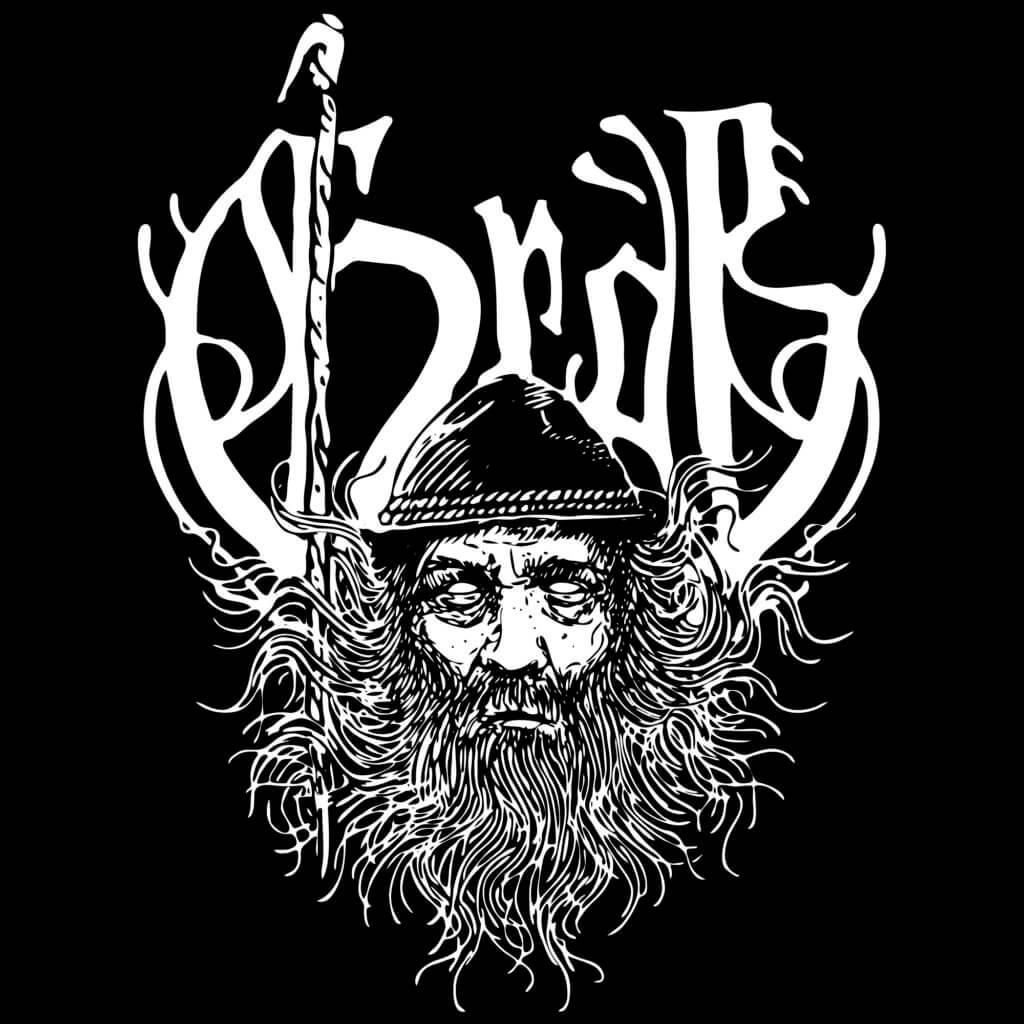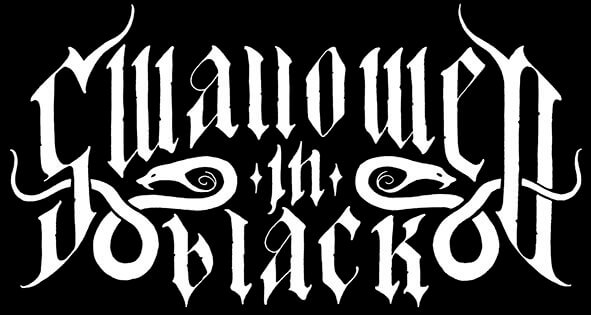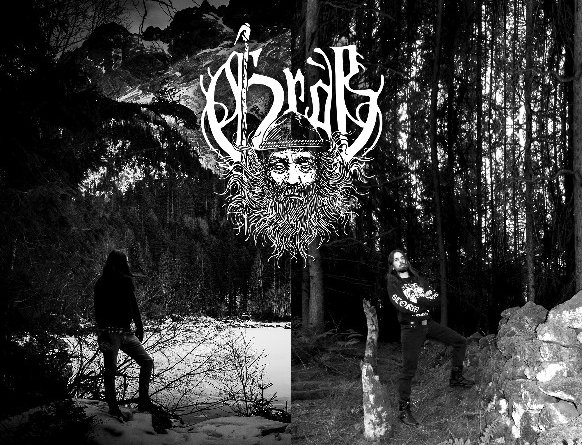“TO EXIST AMONG THESE MENDACIOUS MASSES IS THE REAL HELL” – GRÀNT (GRÀB)
Transfused with an importation of Ingvaeonic blood, Gràb returns from its temporary resting place in the silent, peaceful Bavarian grave whose cold, comforting embrace continues to beckon vocalist and long-suffering Black Metal veteran Grànt. Hate and disgust for humanity have exiled Grànt to the serene solitude of nature but here he breaks from his hermetic existence and briefly sets aside his misanthropic tendencies to discuss collaborating with like-minded souls; identifying with the original ideologies of Black Metal; the invasion of the Hippies; Bavaria’s innate uniqueness and magical landscape; how Satyr is more king of pop than prince of darkness; and nurturing a lifelong yearning for death.
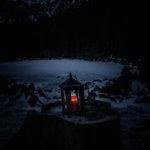 The stars have realigned and Gràb’s ranks have been replenished by the conscription of a new recruit to facilitate the resumption of hostilities. What were the circumstances that led to Gnást being anointed as your new acolyte in Gràb and what common ground do you share, both musically and ideologically? How intent are you on collaborating only with like-minded artists?
The stars have realigned and Gràb’s ranks have been replenished by the conscription of a new recruit to facilitate the resumption of hostilities. What were the circumstances that led to Gnást being anointed as your new acolyte in Gràb and what common ground do you share, both musically and ideologically? How intent are you on collaborating only with like-minded artists?
“Gnást had already been part of our debut, ‘Zeitlang’, looking after the layout for the album. That was when I first got in touch with him. It didn’t take long before I realised that we share several similar views. Not only regarding Black Metal, but also in terms of all the shit going on in this world. I have been creating Black Metal for almost 30 years now and, at least to me, chemistry is everything. Black Metal has never been just music. To me, it has always been the most extreme art to dive into; the abyss of my soul. You don’t just listen to it, you gotta feel it. With other words: live it or leave it! That’s one of the big problems with the current ‘scene’: most of the people have no idea what Black Metal really is. They just listen to it because it’s ‘nice music’ in their opinion. But there’s no identification with the ideology behind the music anymore. To the contrary, in fact, they desperately try to change the ideology of Black Metal into something good, something you could find in mainstream society, but Black Metal never belonged there and will never belong there.”
Thirty years is a long time – I admire your commitment to the cause! Would you say that during these three decades of decadence, Black Metal has evolved or regressed? Or maybe a bit of both? While it has become something of a circus in some regards (and has unfortunately attracted too many of the wrong kind of people), are there still enough worthy characters involved, who remain true to the original spirit of Black Metal? In which case, it remains as much of an outsider, fringe movement as ever it was?
“Black Metal the way it was meant to be simply doesn’t exist anymore. What once started as a rebellion in terms of art and radical ideology somehow turned into something harmless and social. Too many wrong people were attracted to it – those who see something beautiful in the music. But Black Metal was always meant to be antisocial, there’s nothing beautiful in it. When I take a look at the nowadays ‘scene’, I do have the impression from time to time that those people are somehow like the Hippies in the ‘70s – peace, love and understanding is their ideology. Those people never understood the true ideology behind Black Metal. Just an example: they might see something beautiful in nature, but the reason why we did all those corpsepaint-photos in the woods in the ‘90s was never just the beauty of nature. Nature was sort of our ‘escape room’ from society, we preferred to isolate ourselves from other human beings. We were searching for loneliness, because we felt we had nothing in common with the rest of society. In other words, it was hatred and disgust towards humanity that led us into nature. Nowadays I see only a few people left who not only understand the ideology behind Black Metal, they also feel it. Mostly it’s old fucks like me, who experienced the days when it all began. What remains is nostalgia. The extreme underground movement from back in the day is most likely dead and gone. The mainstream has taken over and the only thing the rest of us can do is lurk in the shadows.”
What are the values and feelings you strive to channel through Gràb? A strong reverence and respect for nature is apparent, which I would assume also entails connecting with one’s roots, heritage and ancestry? Acknowledging, celebrating and if necessary defending the most ancient essence of what we are?
“Of course it is mainly about roots and heritage. Bavaria is the place I grew up, Bavarian dialect is my mother tongue. Through Gràb I want to paint a different picture of Bavaria compared to the mainstream picture most people know. You can only stick to something if you are feeling it and whenever I walk alone through the woods and mountains of Bavaria, there’s this feeling of nostalgia growing within me, the memory of a time that will never be again. Yet it’s the only thing that still keeps me alive. I always had this strong fascination and yearning for death. I simply didn’t feel like most of the people around, their goals were never my goals, their thoughts were never my thoughts. As a result, I had this strong impulse to break out of all this. Therefore, all I did throughout the past 30 years is to fight my way through life and to worship death. That’s basically the idea behind ‘Zeitlang’, which is the old Bavarian word for yearning. In this context, the yearning for death.”
How important to you is the distinction between Bavaria and Germany? How much autonomy does the ‘Free State of Bavaria’ enjoy from the rest of the country? I’ve seen Bavaria described as the most German place in Germany and a region that takes great pride in its traditions. Which of these traditions do you value most?
“Of course Bavaria officially belongs to Germany. There’s no real autonomy left. On the other hand, Bavaria always used to do its own thing. For example, in terms of its economy Bavaria was the most stable part of Germany for a long time – not sure if it still is now that the crisis strikes down the whole country. There’s for sure still pride in Bavaria, people are proud to be Bavarians. It’s the magical landscape surrounding us, the traditions, the food, the beer and especially our dialect that differentiates it from the rest of Germany.
“Unfortunately, it was quite unpopular for quite some time to speak in our native tongue in Bavaria. At school we were taught to focus on perfect German; whoever spoke Bavarian dialect was sort of an outsider. But that changed. I do have the impression that people here are sticking to their roots more again. Old traditions are coming to life once more; people have learned to value Bavarian nature again. One of the traditions I value the most is the so-called ‘Sonnwendfeuer’ in the Bavarian mountains, when the longest day meets the shortest night. It’s just a magical picture, how the mountains light up on that particular night.”
But who runs Germany these days? Does the German government represent its people or is advancing the interests of the World Economic Forum? There is already an unelected de facto global administration pulling the strings and this has been patently obvious during the past three years to anybody who cares to open their eyes and stop swallowing the lies of their ‘leaders’ and media.
“Difficult question. I can only say the German government doesn’t represent me. And there are for sure millions of people in Germany who feel the same way. On the other hand, someone elected this government. And that’s obviously not just a handful of people. I don’t understand those people, but I have already stopped trying to understand why they still put their trust in this government. In my opinion, these politicians just follow a certain agenda. As soon as they’ve been elected, they completely forget their oath of office: to protect the people in Germany from any harm and to serve the country. Instead they end up focusing on their own careers and wallets only. They keep telling us lies and too many people are swallowing it. Especially those double standards always give me a hard laugh – it’s hilarious. German government: ‘We can’t do any business with Russia anymore, because Russia started a war and broke international law.’ Also German government: ‘We will instead do business with the USA, with Qatar and with Azerbaijan.’ Now I ask you, how many innocent people have been killed by those three countries already?”
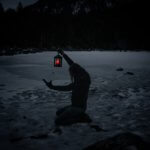 Honouring the power and might of nature has always been an inherent, inextricable part of Black Metal. Listening to the older recordings of seminal bands like Mayhem, Satyricon, Burzum and Immortal, one can still almost feel that timeless icy-cold chill from some secluded frozen land of barren desolation, transcending space and time. It’s more than music, but operates on a primal, primitive level. A call from the past? A call to arms?
Honouring the power and might of nature has always been an inherent, inextricable part of Black Metal. Listening to the older recordings of seminal bands like Mayhem, Satyricon, Burzum and Immortal, one can still almost feel that timeless icy-cold chill from some secluded frozen land of barren desolation, transcending space and time. It’s more than music, but operates on a primal, primitive level. A call from the past? A call to arms?
“Norway had a fantastic scene in the ‘90s, but what’s left of it? In my opinion, Mayhem died with the death of Euronymous. Nowadays this band is only living from the burden of Dead and Euronymous. Satyricon are playing concerts at fashion shows next to the catwalk – guess, that says it all. Burzum used to be one of my main influences in the ‘90s. ‘Hvis lyset tar oss’ is the best Black Metal album ever written to this day, in my opinion. His last great album was ‘Filosofem’. The rest isn’t really recognisable. Nevertheless, Vikernes’ art was a call to arms back in the day. He had the fire (in every meaning) and the passion like only a few others had.”
I can’t imagine you sending Christmas cards, but if you did, I assume Satyr won’t be on the mailing list this year or any other. You regard him as ‘by far the biggest joke of the whole scene’ – do you have any good anecdotes or stories to back this up?
“Only met him a few times, but whenever I did, it was hilarious. I could already fill a book with it. I mean, he’s not acting like a rockstar, he’s acting as if he would be THE rockstar. When we did three shows with them in 2006 (with Dark Fortress), he always sent the tour manager to us, complaining about everything. ‘You are not allowed to have a backstage room. Satyr said, Satyricon need two backstage rooms. One for him and one for the rest of the band.’ At the show in Hamburg, he tried to cancel our catering – food only for Satyricon. Of course Mister Sigurd W. also always needs bottles of the best red wine available – and vegetables. No vegetables, no Satyr. He also tried to suddenly cut down the playing time we were guaranteed in our contract – of course he sent the manager. Before the show in Frankfurt, some Satyricon fans arrived early and asked him to sign their Satyricon albums – he ignored them. A few hours later, on stage already, they were playing ‘K.I.N.G.’, he was suddenly acting like Michael Jackson with this ‘I love you all’ attitude. I could go on with this for hours…”
Either by accident or design, mankind has become almost completely disconnected from nature. Is this the worst thing that has happened to us as a species? Spending our time locked in to cyberspace, bent over unnaturally at desks, brains fried by reality tv and social media, controlled by smart devices, cooped up like city-dwelling chickens – in many ways, more dead than alive. The passage of time should have made us greater but are we in fact a pitiful people compared to our ancestors?
“No doubt, it’s a bad thing for sure, but not the worst. In my opinion, the worst thing is that there’s just too many of us. Overpopulation is the main problem. That leaves this world literally exploding. There’s not enough space for all of us, not enough food, not enough energy. It all leads to the great showdown. Of course it is pitiful compared to our ancestors, because most people nowadays wouldn’t even survive one single day without their smart phone telling them when to take a shit. On the other hand, I don’t think our ancestors would do it much better nowadays. It was sort of a process, step by step humanity was further digging its own grave. And the mass grave seems to be almost prepared. It always gives me a hard laugh when humans still talk about ‘the crown of creation’, as if they would be the best thing that could happen to this world. To me, mankind is in fact the worst thing that could have happened to this planet. Mankind is poisoning the ground on which they are staying, poisoning the animals they are eating. Not really smart moves. It is the limitless arrogance, ignorance and decadence that will give mankind the rope.”
How bitterly ironic too – or perhaps strangely apt, as everything today is an inversion – that, through the human-caused climate change hoax, the shameless orchestrators of increasingly-worrying (and predictable) world events are using the preservation of nature as an excuse to try to tear away our last vestiges of independence and freedom! We’ll be cold and hungry this winter but at least we are saving the environment. More and more will be plunged into poverty and forced into dependence on the system for survival but at least we are saving the environment. While those at the top of the food chain are unaffected and don’t modify their behaviours in any way. Difficult to believe the masses are falling for such nonsense…
“I don’t think human-caused climate change is a complete hoax. In my opinion, climate change is in one way a natural process, which has always been there, but because of the way mankind is treating this planet, it accelerates this process. I agree with you about the rest. The climate change emergency is one of many things used by governments to take control of people more and more. Every step we take is controlled already in this day and age. And things will only get worse in that direction. But most of the people are stupid enough to fall for it simply because they don’t know better. They are unable to survive alone without someone telling them what’s good and what’s bad. I prefer to make up my own mind, develop my own thoughts and walk my own path…”
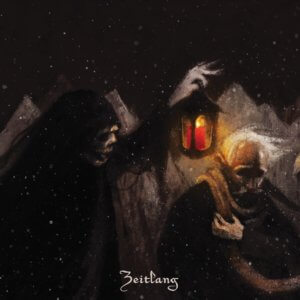 You mentioned that ‘Zeitlang’ references a yearning for death. Death worship / necromancy is another very common theme in Black Metal. Does this longing derive from your recognition of the futility of existence, that we are dying and destined for the grave from the moment we are born? Or from hatred of the parasites that you are forced to share the planet with?
You mentioned that ‘Zeitlang’ references a yearning for death. Death worship / necromancy is another very common theme in Black Metal. Does this longing derive from your recognition of the futility of existence, that we are dying and destined for the grave from the moment we are born? Or from hatred of the parasites that you are forced to share the planet with?
“Most likely both reasons. From childhood on, I had the feeling that I don’t really belong here and that I somehow have nothing in common with all those other people. That’s why I started quite early to isolate myself from people. I just don’t like them. In the end it’s always the same with almost all of them: As soon as they smell money, power or any other advantage for their own, they lie, they cheat. They would literally walk over corpses as long as they could make a profit out of it. It’s all about greed and self-advancement. Ironically, it’s the same people who used to preach solidarity and of ‘common’ goals for society. In the end, we all walk our path alone and we die alone. That’s what I accepted a long time ago. I only see myself as a visitor on earth. I am standing on the outside and with a smile on my face I watch people destroying each other. I don’t fear death. Why should I? To exist among these mendacious masses is the real hell. Death will be salvation in every way.”
Your appraisal of Mayhem, Satyricon and Burzum (with which I totally agree, although I’m disappointed you spared Abbath some criticism…) piqued my interest in your own Black Metal journey, which I’m guessing may have been an eventful one?
“Oh, did I really forget Abbath? How could I? I remember when I first met him in 2002 in Bergen, Norway. At that time we recorded an album at Grieghallen Studios with my former band Dark Fortress. He seriously asked me: ‘How can it be that you guys are recording in my studio and I don’t know about it?’. As if Grieghallen Studios would be his studio! From that moment on, it was clear for me that this guy’s a joke. And everything he did in the past 25 years proves me right.
“To answer your question about my own musical journey, I used to be in Dark Fortress from 1994 to 2007. I left the band when I realised it had all turned into a direction that wasn’t mine anymore. When it comes to Black Metal vocals, my main influences have always been Dead (Mayhem), Aldrahn (Dodheimsgard), Franta Storm (Master’s Hammer) and Vorphalack (Samael). Inspired by them, I tried to create my own style of Black Metal screams. Took some years, but nowadays I’d say, my vocals are kinda ‘unique’.”
You made a conscious decision a decade-and-a-half ago to desist from all live activities. What was the reason why you opted not to perform live and is this an irreversible stance? Are you tempted to take to the stage again now that the Gràb is back in business? And, finally, what is the current situation with regards to any potential new material?
“As already mentioned earlier in this interview, the whole scene was different back in the old days. Concerts used to be deadly serious. But at some point it all changed somehow. With Dark Fortress, we were suddenly signed to a major label and from that point on we had lots of discussions within the band. Some of the band members had this idea that we had to take every opportunity to play live in order to grow bigger and bigger. That wasn’t my attitude. I never did Black Metal to become ‘famous’. Concerts should be something special, something emotionally unique – not just something you do in an attempt to become well-known. I wouldn’t say it’s completely out of the question to enter the stage with Gràb (we never played live thus far), but the chances are low. If so, then maybe just for one unique concert. Time will tell. Gnást has already started composing material for the second Gràb album. Our goal is for sure to create another unique audio journey.”